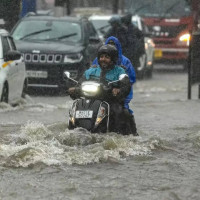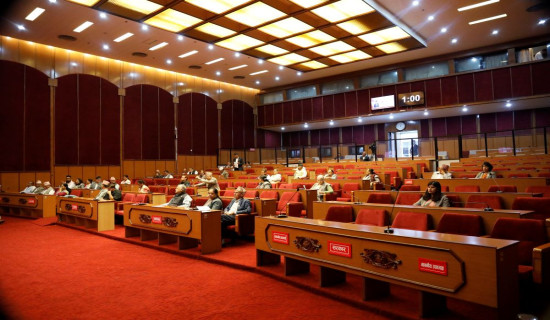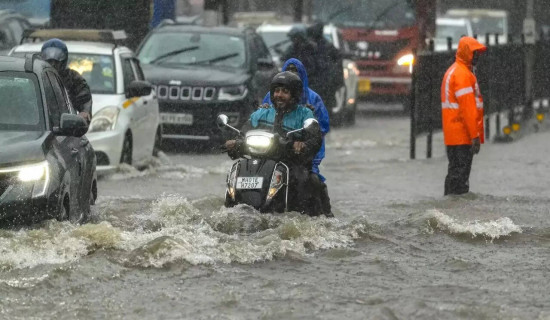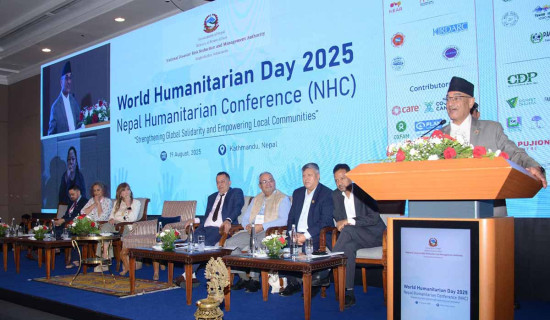- Tuesday, 19 August 2025
HKH Parliamentarians' Meet concludes with five-point call for action
Kathmandu, Aug 19: The Hindu Kush Himalaya (HKH) Parliamentarians' Meet, 2025, has concluded by issuing a five-point call for action.
The KHK Parliamentarians' Meet was organised by Agriculture, Cooperatives and Natural Resources Committee of the House of Representatives for the first in Nepal.
The two-day event that was held under the theme 'Sustaining Nature Empowering People' in Kathmandu from Monday concluded today.
Parliamentarians and representatives from the countries in this region called to take immediate steps in the sectors of climate change, air pollution and bio diversity conservation through regional cooperation.
At the concluding ceremony, Coordinator and member of the organising committee, Bir Bahadur Balayer informed about the Meet's conclusions.
The HKH Meet drew the conclusions that growing climate risk, pollution and loss of biodiversity in the Hindu Kush Himalayan region, which have shared ecological, social and economic importance, have posed serious challenges to community and ecosystem.
Similarly, the event also stressed on climate tolerance, clean air and bio-diversity conservation to be kept on priority for secured future of coming generation and called for cooperation for regional unity, inclusive development and sustainability by making the legislative role of parliamentarians effective.
The issues including organising the meet regularly, and exploring possibility for establishment of 'Hindu Kush Himalaya Parliamentarians Forum' for regional talks, exchanging experiences and best practices are also incorporated in the call for action.
Nepal, Afghanistan, Bangladesh, Bhutan, China, India, Myanmar and Pakistan fall under the Hindu Kush Himalayan Region.
Earlier, addressing the concluding session, Speaker Devraj Ghimire has said that joint efforts of all countries are indispensable as common challenges such as climate change, air pollution and biodiversity loss cannot be solved by any single country alone.
Stating that the Hindu Kush Himalaya region is home to 240 million people and about two billion people depend on the natural resources of this region, he said that it is one of the most sensitive regions of the Earth. "The temperature in this region is increasing at a rate almost double that of global warming, causing serious impacts such as melting of glaciers, devastating floods, water crisis and increasing droughts." (RSS)















